Addressing Georgia’s Housing Crisis
House Bill 404 can play a vital role for communities and children.

Georgia’s housing crisis is a stark reality that disproportionately affects communities of color. The statistics are alarming: over 582,000 households in Georgia (15.2 % of Georgia all homes and 21% of Black families) face severe housing problems such as lack of plumbing or kitchen facilities. This issue is more than a matter of comfort; it’s a critical social determinant that impacts the health, education, and future prospects of children growing up in these environments.
The Disproportionate Impact on Communities of Color
Communities of color in Georgia bear the brunt of this crisis. Before the COVID-19 pandemic, 18.8% of renting families faced eviction annually, with rates soaring even higher post-pandemic, especially in Atlanta’s Black and Brown communities. In Clayton County alone, landlords filed enough evictions to potentially affect over 35% of renting households in just one year. These eviction rates are not just numbers; they represent families uprooted, children displaced from schools, and communities destabilized.
House Bill 404: A Beacon of Hope
In this challenging landscape, House Bill 404 emerges as a beacon of hope. This bipartisan legislation is pivotal, aiming to establish minimum safety standards for rental housing – a fundamental requirement shockingly absent in current laws. By mandating these standards, HB 404 would ensure that tenants, especially in vulnerable communities, have access to safe and habitable living conditions.
Protecting Tenants and Responsible Landlords
Importantly, HB 404 not only protects tenants but also supports good landlords. By holding slumlords accountable and requiring them to maintain their properties, the bill levels the playing field. Responsible landlords, many of whom already provide safe housing, would benefit from a more regulated and fair housing market. This bill ensures that those who cut corners and neglect their properties can no longer do so at the expense of their tenants’ safety and well-being.
Safe Housing: A Social Determinant for Children’s Success
The connection between safe housing and a child’s ability to thrive is undeniable. Children growing up in stable, healthy environments are more likely to attend school regularly, perform better academically, and graduate. In contrast, those in unsafe or unstable housing conditions face higher risks of health issues, such as asthma (with Georgia’s children experiencing nearly 50% higher rates than the national average) and are more likely to encounter challenges in their educational journey. Safe housing is not just a basic human need; it’s a foundation for children to become productive members of society.
Conclusion
House Bill 404 stands as a critical measure in addressing the housing crisis in Georgia. By establishing basic safety standards and ensuring fair practices in the rental market, this bill has the potential to significantly improve the lives of thousands of families and children, particularly in communities of color. It’s about creating a foundation where every child can have a stable home, conducive to learning and growing into a successful adult. As citizens, it’s our responsibility to support such initiatives that aim to uplift and stabilize our communities for the betterment of all.

